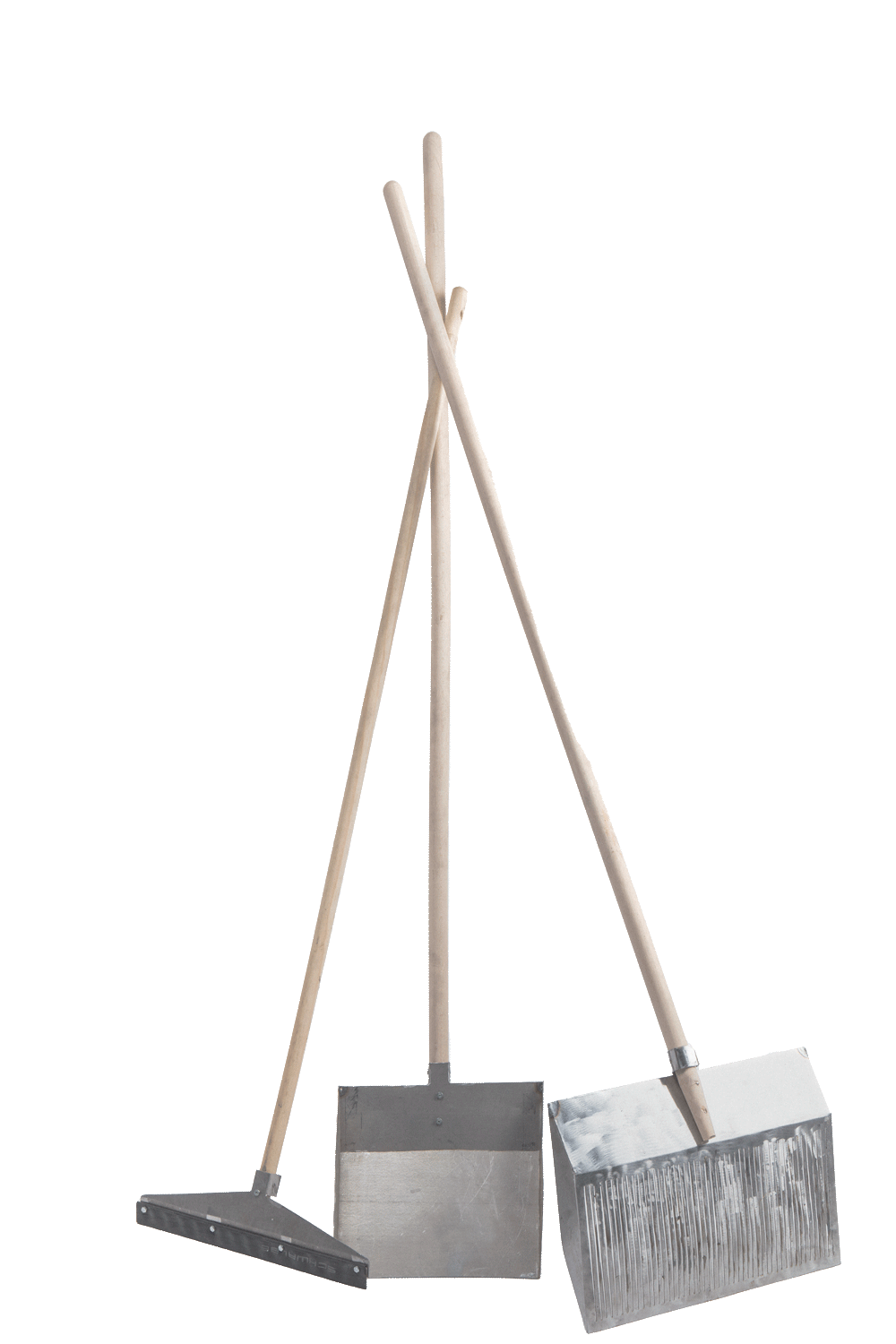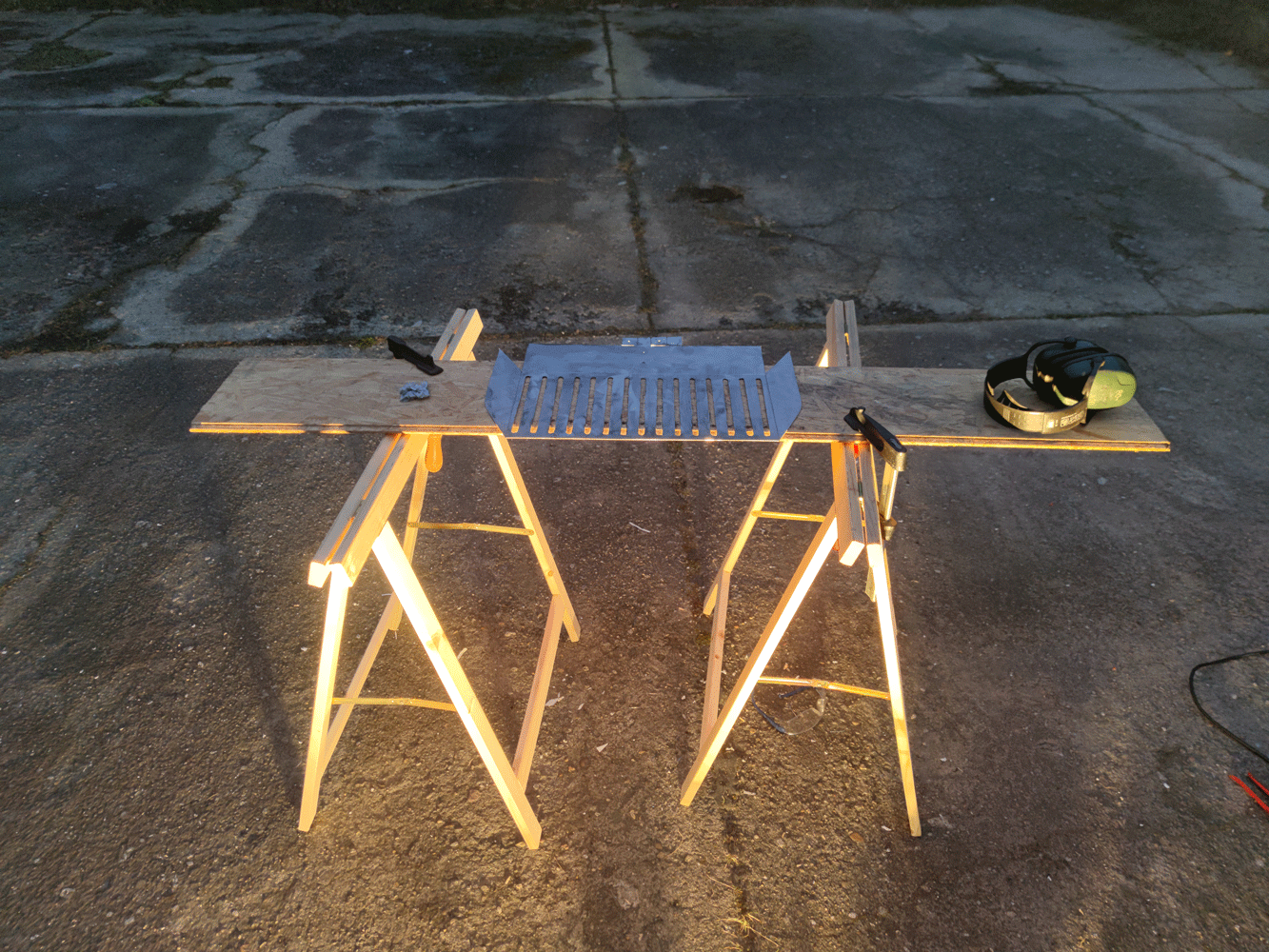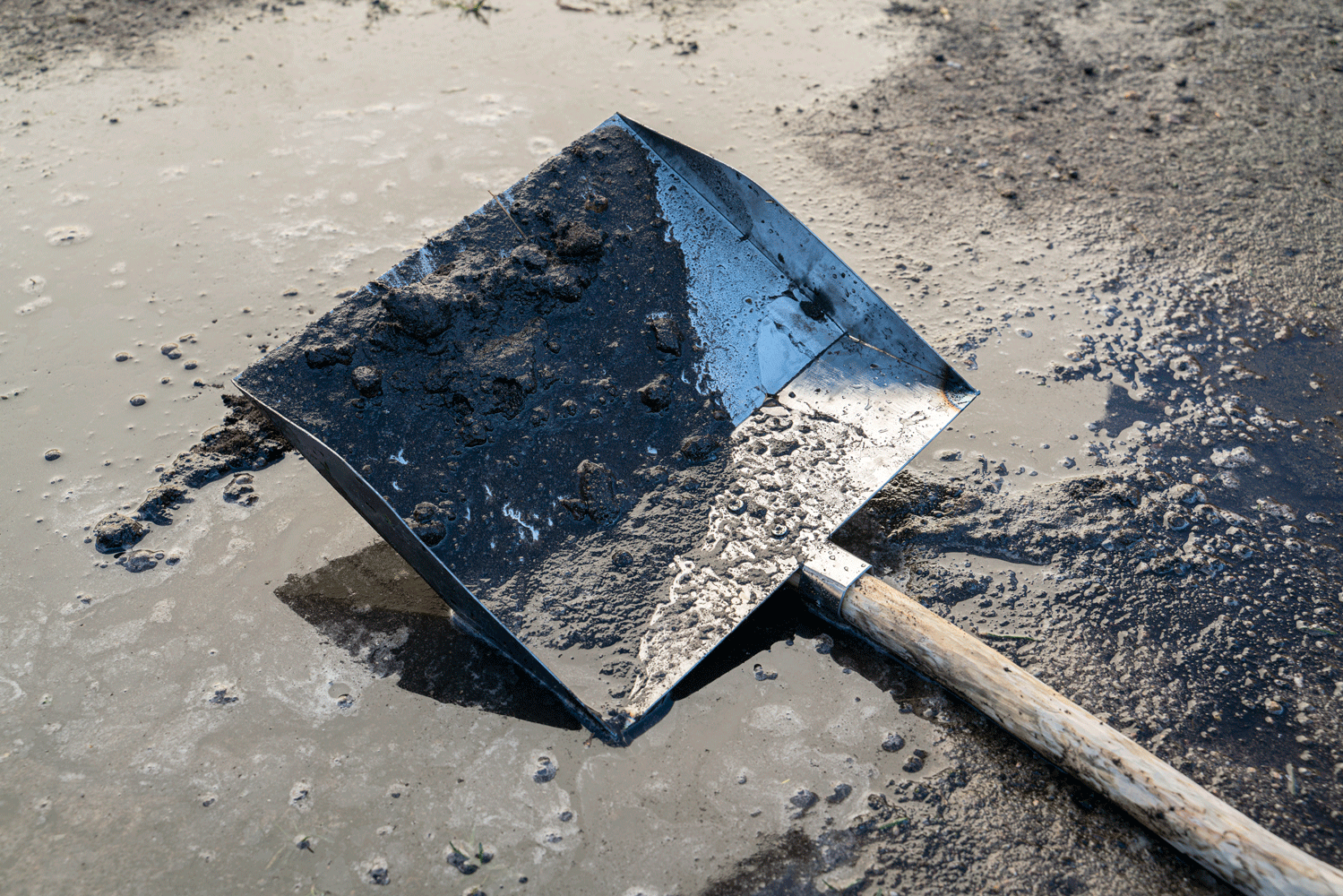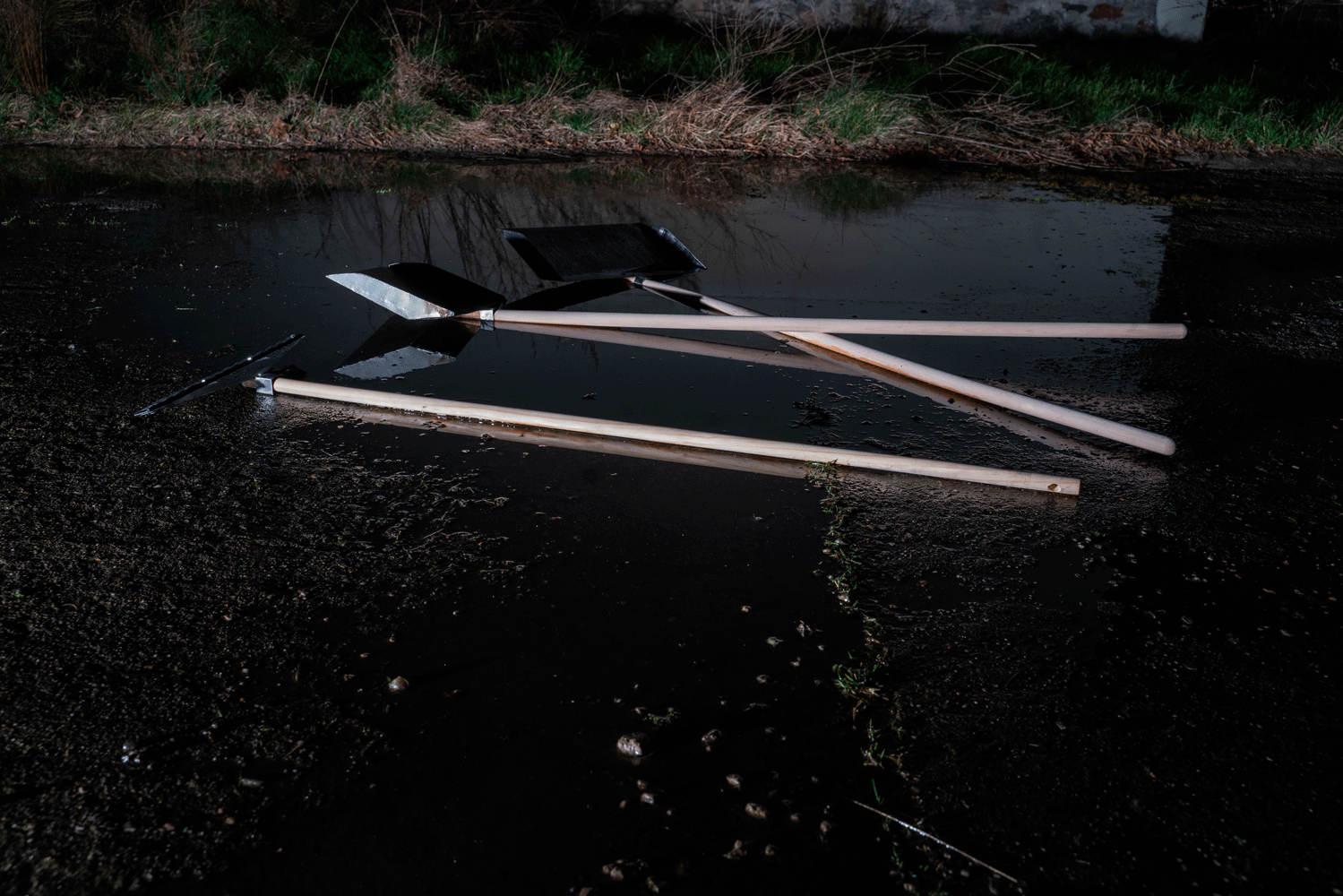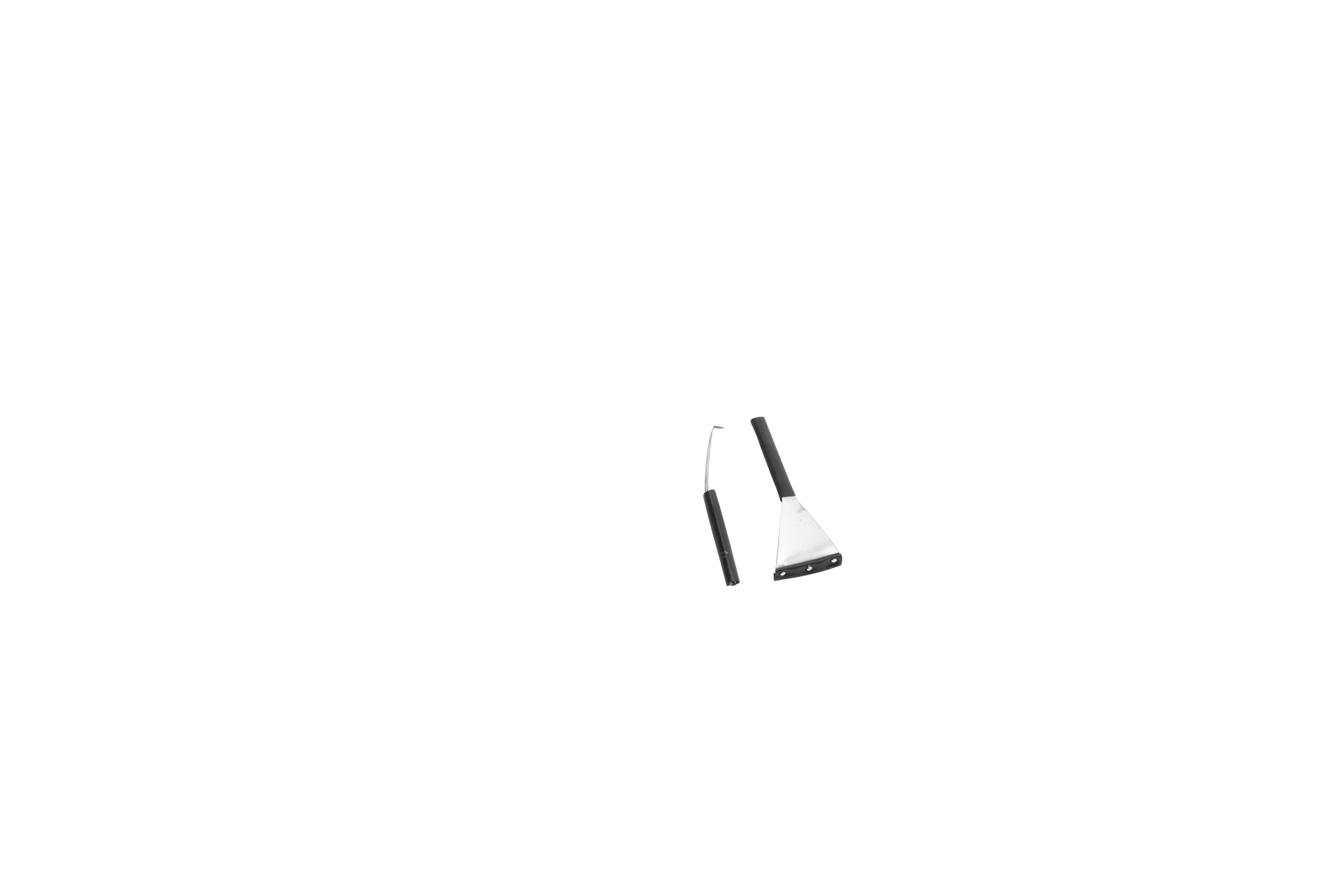Lowtech Shovel
APRIL 2022
In crisis situations, solutions are needed quickly. The Covid-19 pandemic showed us that a maker approach can deliver them. As a result of the floods in the Ahr valley, thousands of people came to the region every day to help. Many of these people could not be adequately supplied with equipment, so tools such as shovels were missing. This work deals with how a network could quickly develop solutions for such a situation. The original problem, the lack of tools, is presented, to which the network can respond with a fast and iterative process. Through the various global actors, prototypes can be produced incredibly quickly in order to gather the knowledge learned from them. In the course of this process, different approaches emerge until the best products prevail. In this visualisation of such a process, the first prototypes of a very easy-to-manufacture shovel are created, while new approaches for situation-specific tools emerge along the way. The process has resulted in a shovel that can be made with the simplest of means, even from scrap metal produced on site. As well as other tools, such as a water scraper, a shovel designed to separate coarse mud and parts from the water, as well as small tools to remove mud from the living areas. Production in the field serves as another process for product development. Only through the experience gained in the field can a product become really good. A local actor is responsible for taking the developments and feedback back to the platform.
In this case, we are in Germany, a country with a large steel industry that is most likely able to supply such a situation with the necessary tools. However, several points speak for me why this tooling development nevertheless adds a lot of value to the situation. The design of a low-tech shovel creates an independence, a democratic product, so to speak, that is not bound to the goodness of an institution. In the case of Germany, this goodness was given, but in other countries it may very well be that the infrastructure for such donations is not given. Since the product flows into the platform's database, it can be used for crises in the longer term.
In the production of the Faceshields, a big motivation was an emotional one. One's own skills and tools could be used directly to help people in crisis. The same could be true in the production of the shovels. With the simplest of techniques, they could have been made on site from waste by volunteers.
